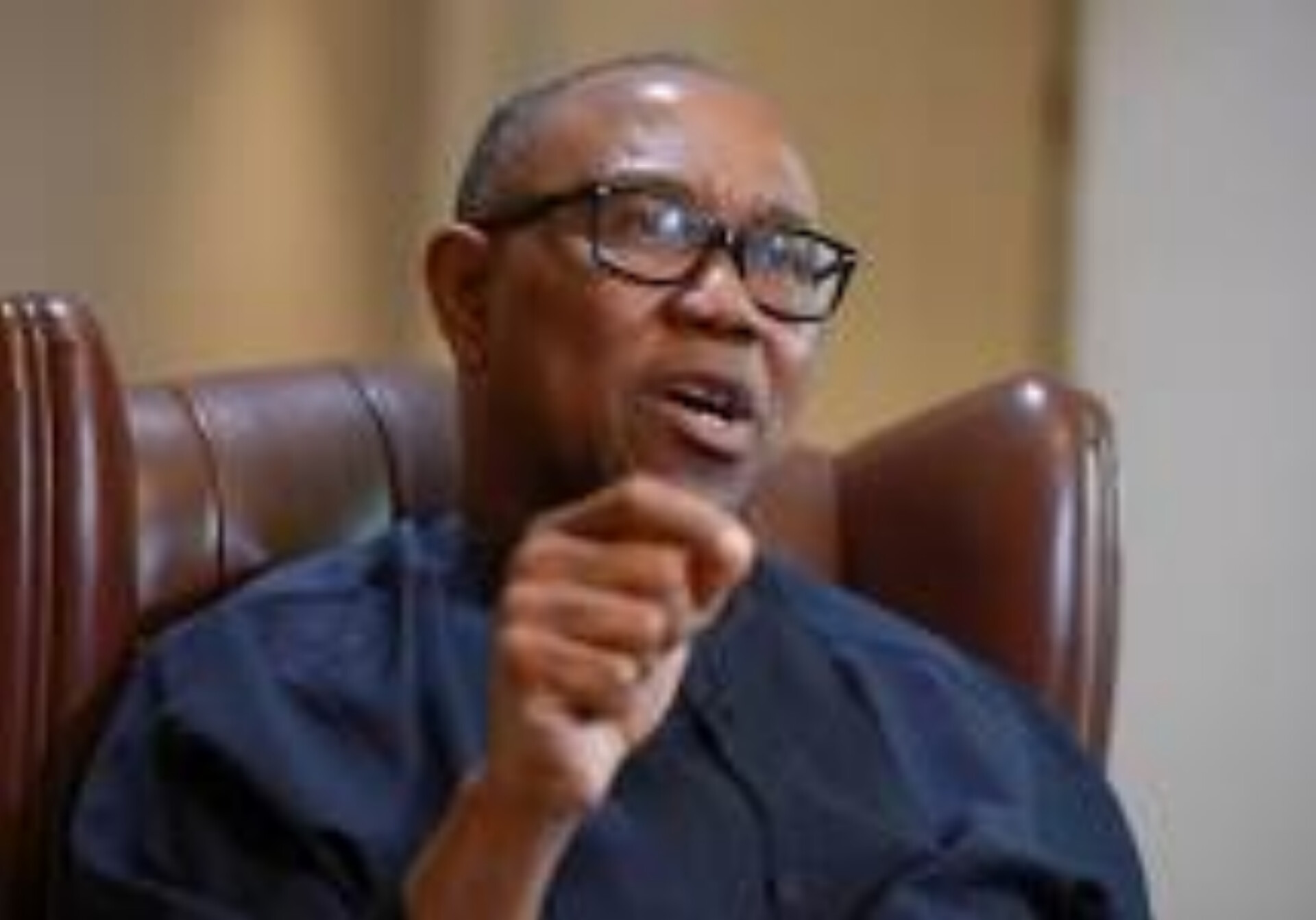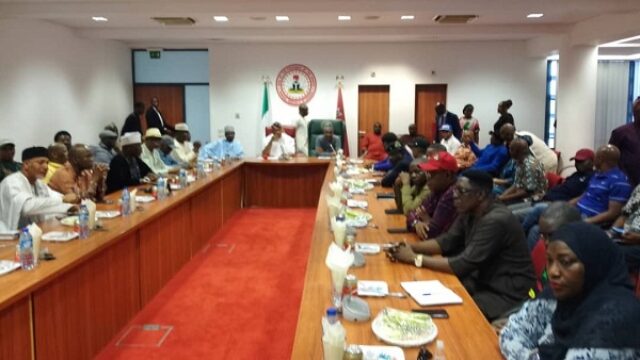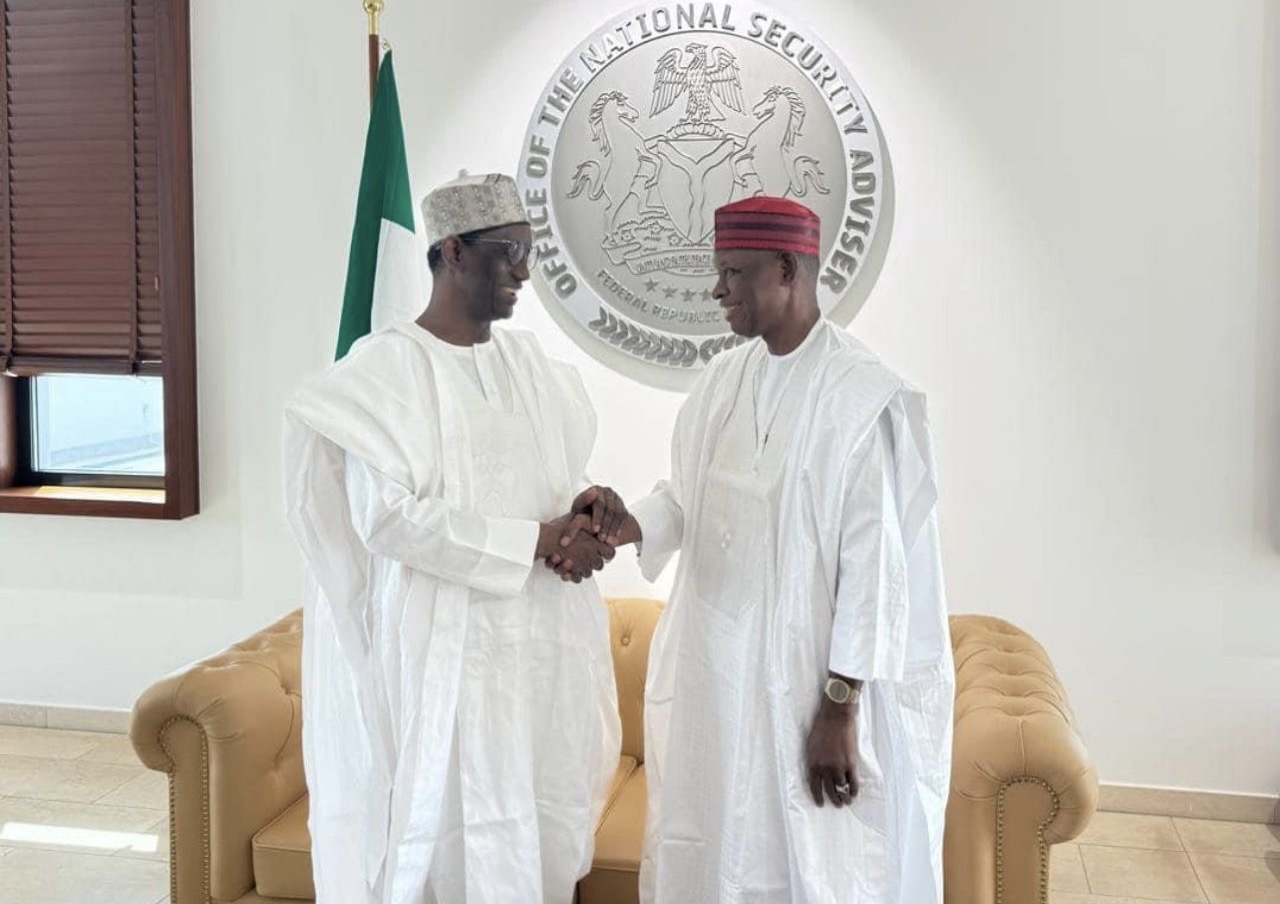National
Obi sounds the alarm over deplorable Power Situation

***Says Nigeria cannot grow its economy in Darkness
***Expresses sadness that Nigeria is the lowest per capita wattage in the World.
***wants a Technical Task Force in Place.
The incessant power situation in the country with record of national grid collapse 141 times in 11 years is a case for urgent pragmatic solutions, the Presidential Candidate of the Labour Party (LP) in the 2023 general election, Peter Obi has indicated
He expressed deep concerns that Nigeria has only 13,000mw while the demands are about 200,000mw.
Obi pointed out that even with the 13,000mw, only about 3,500mw are available for homes and businesses noting that the situation puts Nigeria as the lowest per capita wattage in the World.
In an article, titled “The Collapsing Electricity Sector”, the LP standard’s bearer said “The Nigeria electricity supply industry faces real and present danger of collapse despite the efforts made in more than two decades to initiate a reform of the NESI.
“It is sad today that we suffer periodic and routinized system collapses that are attributed to such avoidable situations as fire outbreaks at critical transmission lines across our major cities.
“It is absolutely distressing and a story of a low level of managerial capability that the entire nation can be plunged into total darkness for a reasonable period because networks go out because of a lack of diligent attention.
“It should worry any Nigerian patriot that the total installed capacity for a country of more than 200 million people with an aspiration to become a global medium economy power is a mere 13,000.
“Worse still, only about 3,500mws are available for homes and businesses from the grid. Sometimes, it grinds to less than 2,500mws. This is unacceptable.
“We can contrast the available supply of electricity with competitor countries in Africa like Egypt and South Africa with respective populations of approximately 112m and 59.6m people supplying about 60,000mw and 58,000 respectively.
“This difference in energy wattage has massive implications for human development and economic growth.
“Nigeria today has the world’s lowest per capita wattage in the world, interesting lower than those of most of our West African neighbours.
“It is really sad that whereas our energy demand is above 200,000mws, we have only 13,000mw installed capacity and can only deliver regularly less than 4,000mw.
“After speaking with experts in the sector I have realized that the crisis of power supply in Nigeria relates to two major sectors: (1) generation, and (2) transmission and distribution.
“The major challenges of the generation sector are the lack of a regular supply of gas arising from the failure of the government in the last 8 years to provide adequate gas infrastructure facilities, weak commerciality of gas to power and failure to control the restiveness of angry youths leading to vandalism.
“It is shameful that for more than 8 years we cannot resolve the infrastructural bottlenecks that constrain the supply of gas to power plants despite billions from CBN for legacy gas debts.
“On the transmission and distribution side, the last 8 years have witnessed terrible failure to overcome the deterioration of networks and transmission and distribution networks and invest in modern technologies like SCADA leading to poor coverage, lack of effective coordination between TCN and discos leading to load rejection and inability to generate public trust for policy reform on tariff and leading to low private sector investments.
“If we had a good project manager, we would have massively increased generation, transmission and distribution capacity and enhanced policy coherence that would have crowded private sector investment in the degree to sustained rapid growth of the grid. The problem is that the government have exercised the required political will to appoint the right kind of leadership that understands the problems of the sector and has the singular dedication and competence to create quick wins in the short term and transformation in the medium to long term.
“I suggest that the Federal Government immediately constitute a technical task force of real professionals without political consideration to present a diagnosis of the crisis of the sector and to get to work to correct such simple slippage like incessant fire outbreaks that lead to perennial system collapse, drastically improve coordination and coherence between TCN and discos so there will be no load rejection, and breath down on all operators to deliver on their technical responsibilities. This will rapidly improve power availability in the short term while the government develop clarity to articulate an integrated national electricity policy and a practical implementation roadmap that harmonizes national and sub-national electricity reform efforts to ensure rapid and expansive delivery of reliable, adequate, and affordable electricity.
“We are too endowed to be a nation of generators and to be trapped in darkness. We cannot grow our economy in darkness.
National
Strike: NASS Leadership, Labour Leaders, others in closed meeting to avert industrial action

In last minute effort to prevent indefinite industrial action declared by Nigeria Labour Congress ( NLC) and affiliate bodies from tomorrow, Monday, June 3, 2024 , the leadership of the National Assembly led by the President of the Senate, Godswill Akpabio and Speaker of the House of Representatives, Hon Tajudeen Abbas, are currently in closed door meeting with the labour leaders and some Ministers at the Senate Wing of the National Assembly
The Secretary to the Government of the Federation, Senator George Akume, Minister of Finance , Wale Edun, Minister of Information and National Orientation, Alhaji Mohammed Idris Malagi and some other Ministers are also at the Emergency meeting.
Labour welcomes negotiations for “survival wage “NOT “starvation wage” for workers. Akpabio cautions Labour to be mindful of possible “collateral damage” that might lead to massive job loss
Thesewere just before they went into a closed door meeting.
The National Assembly had had earlier indicated that it would engage the organized labour as part of moves to avert the industrial action due to commence on Monday.
It said its decision of to intervene followed the deadlock between the federal government and the Labour Unions in agreeing on a new national minimum wage and reversal of the recent hike in electricity tariffs. The National Assembly stressed that both parties have tenable reasons for their respective positions.
A statement issued Sunday and jointly signed by the spokesperson of the Senate, Senator Yemi Adaramodu and the spokesperson of the House, Akin Rotimi revealed that the President of the Senate, Senator Godswill Akpabio, and Speaker of the House of Representatives, Hon. Abbas Tajudeen, are taking proactive steps to mediate and avert the impending industrial action.
The legislative arm was of the opinion that the strike action would have severe repercussions on the populace and economy
It said: “The National Assembly acknowledges the announcement by Organised Labour, including the Nigeria Labour Congress (NLC) and Trade Union Congress (TUC), to commence an indefinite strike action from Monday, June 3, 2024, nationwide.
“In view of this, the National Assembly Leadership and the Chairmen of the Senate and House Committees on Labour, Employment and Productivity respectively, Senator Diket Plang, and Rep. Adegboyega Adefarati, are looking to engage both parties in constructive dialogue and explore a variety of solutions in addressing the issues at hand.”
It added that the 10th National Assembly was committed to ensuring that the interests of all parties are fairly represented.
National
Strike is not in the interest of Nigerians, Labour Minister cautions organised labour

The Minister of State for Labour and Employment, Barr. Nkeiruka Onyejoecha, has caution the organised insisting that embarking on a nationwide strike is not in the best interest of the country and its people.
In a statement by her Special Adviser (Media) Emameh Gabriel the minister
Minister advised the workers unions to have a rethink as declaring a strike in the middle of ongoing negotiations would not only compound the economic woes but also exacerbate the suffering of millions of Nigerians who are already struggling to eke out a living from their daily endeavors.
Explaining further the Minister noted that the “government has consistently demonstrated commitment and goodwill throughout the negotiations with organised labour.
She pointed out that the government’s proposals were carefully crafted, taking into account the country’s economic realities and incorporating innovative solutions.
“These proposals include a comprehensive package featuring a wage increase to N60,000 for federal workers, the introduction of CNG-fueled buses, and enhanced financial access for Micro, Small and Medium Enterprises (MSMEs). “Additionally, the government has pledged investments in strategic sectors such as agriculture, manufacturing, education, healthcare and many others that are already in the pipeline.
She however cautioned that any new minimum wage must not lead to widespread job losses, particularly in the Organised Private Sector, which employs the bulk of the nation’s workforce
“This sector is crucial to the country’s economic growth and stability. The government’s stance is rooted in a deep understanding of the negotiations, demonstrating its dedication to finding a balance between the needs of workers and the economic realities of the country.
“The goal is to establish a minimum wage that is not only realistic but also sustainable, avoiding any potentially detrimental consequences for the economy.
“By adopting this approach, the government aims to safeguard the interests of both workers and employers, ensuring that any agreement reached is mutually beneficial and does not jeopardise the country’s economic progress.
“This balanced stance is crucial for maintaining harmony in the workforce and driving national growth”, she explained.
The Minister expressed disappointment that in a surprising turn of events, organised labour abruptly exited the negotiations yesterday, despite the government’s flexibility in rescheduling the meeting from Monday to Friday, May 31st, to accelerate the talks.
“Labour unions remained adamant in their demand for a staggering 1,547% wage increase, after the government’s proposed 100% increase, accompanied by various incentives for workers.
“It is widely acknowledged that the labour unions’ demands are unrealistic, given the country’s current economic position. The government takes into account the nation’s fiscal constraints and the need for sustainable economic growth. In contrast, labour’s demands seem disconnected from the economic realities, potentially jeopardising the very gains they seek to achieve”.
“The government’s willingness to engage in dialogue and its demonstrated flexibility in the negotiations underscore its commitment to finding a mutually beneficial solution. However, labour’s inflexibility and unrealistic expectations may hinder the progress made thus far, ultimately harming the workers they represent and the nation as a whole, the minister added.
She however, urged the unions to reconsider their decision and continue engaging in constructive dialogue to find a solution that benefits all, as strike will disproportionately harm the most vulnerable segments of our society. She concluded by asking
organised labour to continue to respect the principles of social dialogue, engaging in good-faith.
National
Gov Yusuf Visits National Security Adviser, Ribadu

Governor Abba Kabir Yusuf of Kano State on Thursday met with the National Security Adviser Malam Nuhu Ribado at his Office in Abuja
The meeting which was ocasioned by the recent happenings in Kano following the dissolution of five emirates by the Kano State House of Assembly through the repeal of the state emirate law, the governor’s assent and the subsequent restoration of Emir Muhammad Sanusi II by the
Governor.
The Governor’s spokesperson Sanusi Bature Dawakin Tofa, in a statement indicated that the two political leaders deliberated on various matters relating to state/national development and the peaceful coexistence of the nation during their discussions in Abuja.
Recall that the NSA had been accused of involvement in the Kano crisis for allowing a substantial military presence to protect the dethroned Emir Aminu Ado Bayero, a position the Office of the NSA debunked
The Kano State Deputy Governor, Comrade Aminu Abdussalam Gwarzo, had apologized to the NSA for his implication in the Kano crises, attributing the error to flawed intelligence.
Recognizing the respected professional background and integrity of the NSA throughout his time as an Officer and Anti-corruption campaigner, the state deemed it necessary to retract the allegation and offer a sincire apology.
In harmony with these events, the Governor’s meeting with the NSA coincided with Emir of Kano Muhammadu Sanusi II’s six-day stay at the Kano palace, where a significant majority of district heads and kingmakers already pledged their allegiance and loyalty to the newly consolidated Kano Emirate under the leadership of the 16th Emir.
The state assured that Kano has been characterized by peace and tranquillity, and thus urges all residents to continue their regular activities in compliance with the rule of law.
“It was a fruitful discussion between myself and the National Security Adviser, his role is critical for the harmonious existence of our nation, so I briefed him on the recent developments in Kano,” Governor Yusuf confirmed.
-

 Crime1 year ago
Crime1 year agoPolice nabs Killer of Varsity Lecturer in Niger
-

 News1 year ago
News1 year agoFCT-IRS tells socialite Aisha Achimugu not to forget to file her annual returns
-

 Appointment2 years ago
Appointment2 years agoTinubu names El-Rufai, Tope Fasua, others in New appointments
-

 News From Kogi1 year ago
News From Kogi1 year agoINEC cancells election in 67 polling units in Ogori-Magongo in Kogi
-

 News From Kogi2 years ago
News From Kogi2 years agoEchocho Challenges Tribunal Judgment ordering rerun in 94 polling units
-

 News2 years ago
News2 years agoIPOB: Simon Ekpa gives reason for seperatists clamour for Biafra
-

 Metro1 year ago
Metro1 year ago‘Listing Simon Ekpa among wanted persons by Nigeria military is rascality, intimidation’
-

 News1 year ago
News1 year agoKingmakers of Igu/ Koton-Karfe dare Bello, urge him to reverse deposition of Ohimege-Igu
